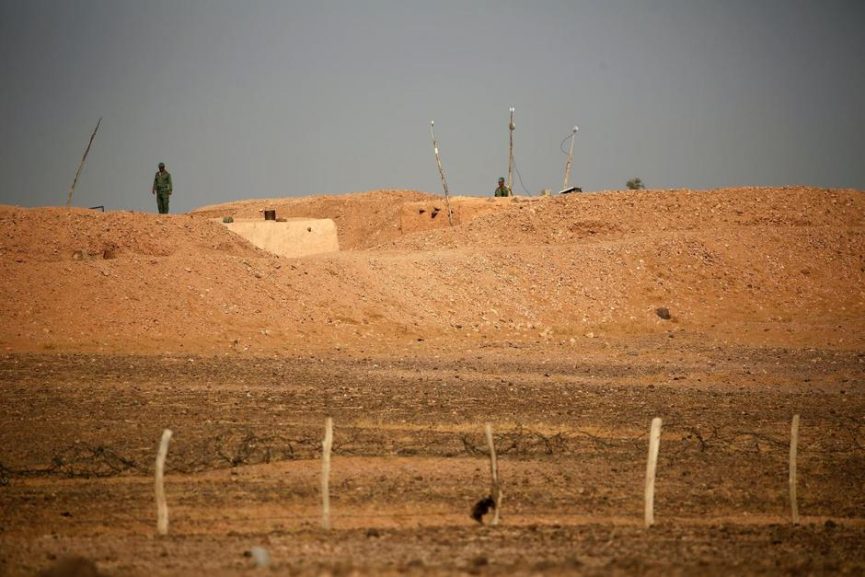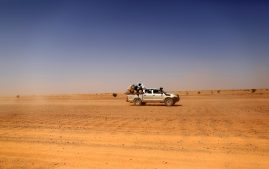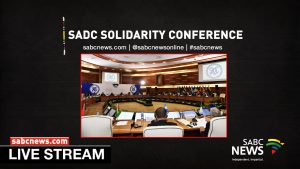Parties to the long-running conflict over Western Sahara will meet for a second round of talks after a successful initial round that took place in December last year in Geneva.
The UN Secretary General’s personal envoy for Western Sahara told the Security Council that he expected to hold bilateral talks with the parties which include Morocco, the Frente Polisario and neighbours Algeria and Mauritania through February before convening a roundtable of all parties in March.
The envoy – former German President Horst Köhler – successfully brought the parties together last year for the first time in six years – momentum Council diplomats including South Africa would like to see maintained.
The special envoy was – as ever – reluctant to speak to the press on his way into the Council. But word from inside the closed-door meeting appears positive – at least according to South African Ambassador Jerry Matjila.
Matjila says, “The parties are talking, it’s very positive that they remain around the table all of them. It’s very positive that they listen to one another, it’s positive that they agreed to meet again. I think this is a very important step after six years of no talk. What’s also encouraging is that the parties have confidence in Horst Köhler, all of them trust him. That he’s an honest broker, this is very important for us.”
Pressure has been building since April last year when permanent Council member the United States warned that there could no longer be business as usual regarding the UN Mission for the Referendum in Western Sahara – a mission established as far back as 1991. At Washington’s insistence the mandate of MINURSO was extend by just six months in October in order to keep the pressure on the parties to make progress under Köhler’s leadership.
“What has changed is a few things – A – that the parties trust Horst Köhler, secondly that the parties agreed to sit around the same table, eat dinner together and talk to one another. What has changed is that the parties respect one another, listen to one another but fundamentally what has also changed is that Horst Köhler was received in Tindouf refugee camps, was received received by his Majesty in Rabat, also was allowed to go to Laayoune which has never happened before. That he was allowed to go to Laayoune and to talk with all the Saharawi groups there, so this for us is very positive.”
Diplomats agree that the momentum after the Geneva talks should not be lost as French Ambassador Francois Delattre explained.
“It’s not nothing compared to where we were a few months ago, so each step at a time but obviously again, the unanimous support to Horst Köhler struck me in a positive sense from each and every of the 15 countries at the table and based on that the hope is for everybody to move forward at the right pace and with the right decisions.”
The Polisario’s UN Representative Sidi Omar acknowledged the positive atmosphere of the first round of talks but urged the Council to support rapid and concrete progress towards direct negotiations between the parties.
“Taking into account that the meeting was held after six years of virtually no meetings or contact between the two parties, so for us it was the beginning, it was held in a positive climate. We interacted with the other party and with the two neighbours were invited also to the roundtable, so it was a positive beginning. It’s not enough of course because the way ahead is still to be covered but at least it was a good start and we hope that the Council will continue the support to build on this moment and for us towards as I said a more focused and substantive stage of direct negotiations where we expect the real progress to be made.”
Morocco annexed the former Spanish colony Western Sahara in 1975 and fought the Frente Polisario for 16 years before a UN-brokered Ceasefire in 1991. Rabat considers the region its southern provinces while Polisario insists on self-determination through an internationally sanctioned referendum.






